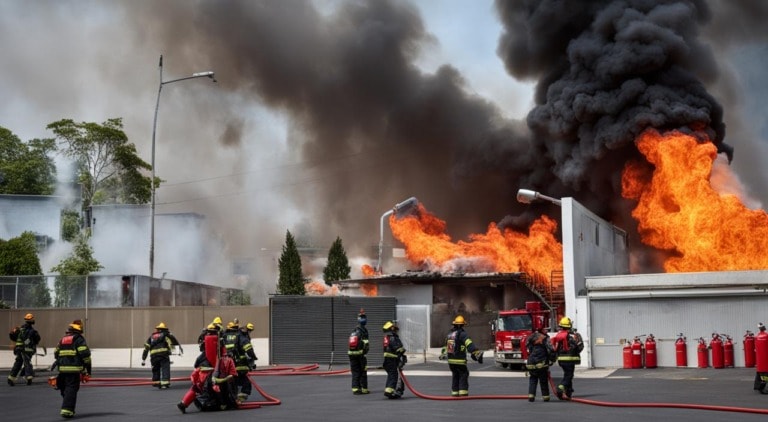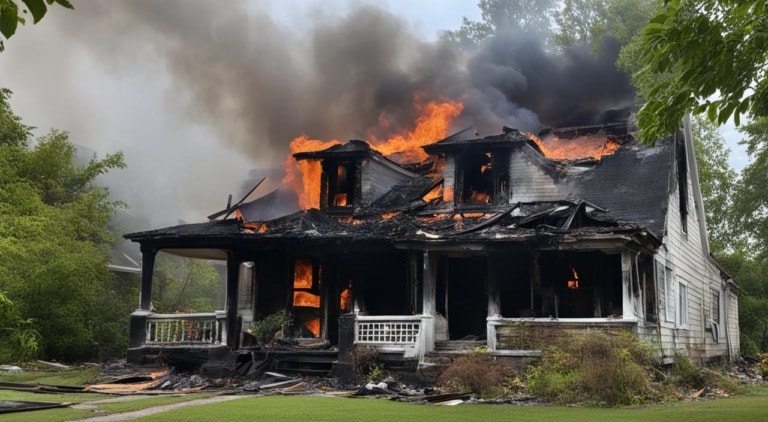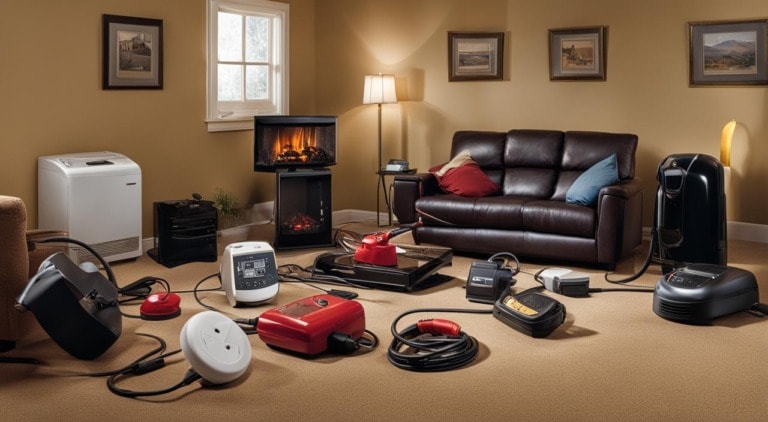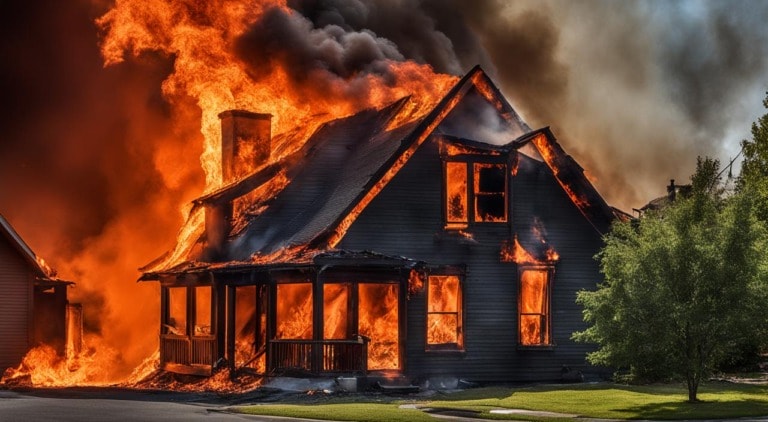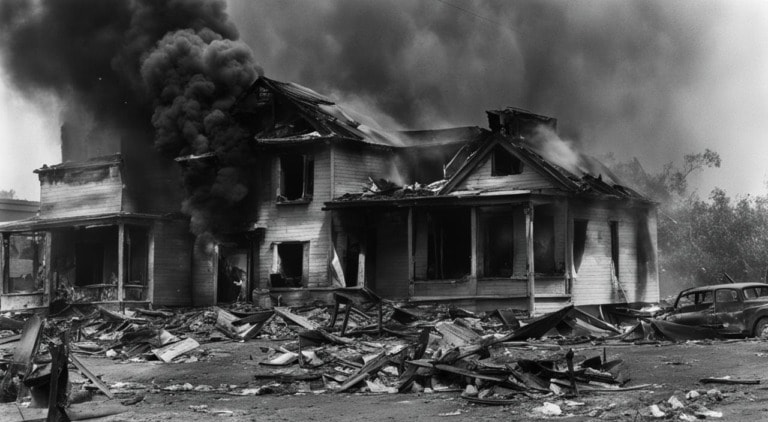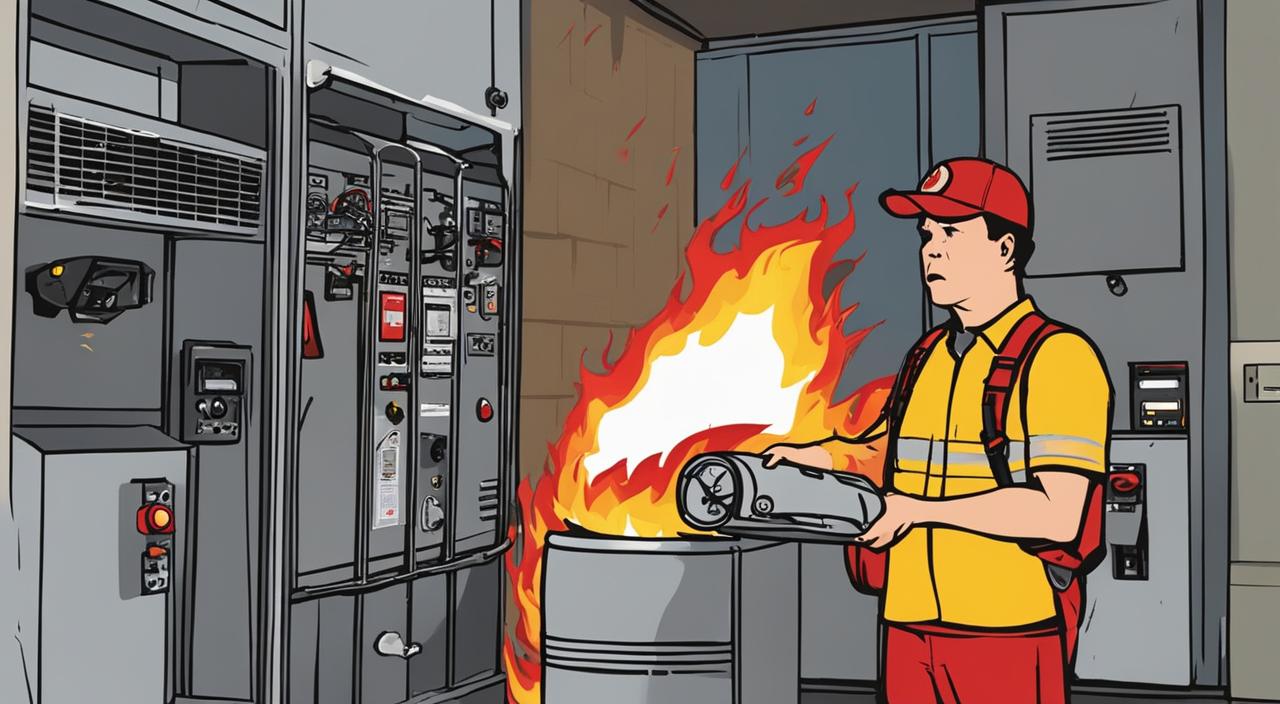
When our fire alarms start beeping, it can be incredibly frustrating, but it’s important to address the issue promptly for our safety. The National Fire Protection Agency (NFPA) emphasizes the significance of having a working smoke alarm, as almost three out of five home fire deaths occur in homes without one.
Knowing the reasons behind a fire alarm beeping 3 times can help us troubleshoot the problem and ensure our safety. Some possible causes include a fire, low battery, end-of-life alarm, or malfunctioning device. Taking the appropriate actions for each scenario can help address the issue effectively.
Fire Alarm Beeping (Emergency Signals and Battery Issues)
If your fire alarm beeps loudly and rapidly, it is essential to recognize it as an emergency signal indicating a fire. In such a situation, following your home fire escape plan, evacuating immediately, and contacting emergency services are of utmost importance to ensure your safety and the safety of those around you.
However, if your smoke alarm emits three beeps, pauses, or periodic chirps, the issue is likely related to the battery or the device itself.
One possibility is that the smoke detector has reached the end of its lifespan, and it is necessary to replace it with a new one. Before doing so, check the manufacturer’s warranty to see if you are eligible for a free replacement.
Alternatively, the problem might be with the batteries. To determine if the batteries need replacement, press the “test” button and listen for a loud alarm.
If you hear a weak sound or nothing at all, it indicates that the batteries are low or depleted. In this case, replacing the batteries or ensuring they are properly inserted should resolve the issue. It is recommended to regularly check smoke alarm batteries, especially during daylight savings time.
By addressing fire alarm beeping caused by emergency signals or battery issues promptly, you can maintain the effectiveness of your fire alarm system and ensure the safety of your home and loved ones.
Troubleshooting Fire Alarm Beeping: Environmental Factors and Additional Measures
If you have already replaced the batteries in your fire alarm and the beeping persists, there may be other factors contributing to the issue. One possibility is a residual charge, which occurs when a small amount of charge is left on the capacitor plates even after a battery replacement.
This residual charge can cause the alarm to continue beeping. If this is the case, you may need to take additional measures to resolve the problem.
Another factor to consider is the environment in which your smoke alarm is located. Environmental conditions such as temperature, humidity, and airflow can have an impact on the proper functioning of the alarm.
If your smoke detector is positioned too close to a window, ceiling fan, or HVAC register, it may be exposed to extreme temperatures, which can disrupt its operation. In such cases, it is recommended to relocate the smoke detector to a more suitable area to ensure its effectiveness.
In addition to troubleshooting the beeping issue, it is important to prioritize the maintenance of your smoke alarms. Regularly testing your smoke alarms is crucial to ensure they are functioning properly. It is also important to replace the batteries as recommended, typically during daylight savings time, to avoid any low battery issues.
Furthermore, it is recommended to replace the entire smoke alarm after 10 years to maintain optimal fire safety in your home.
Carbon Monoxide Alarm
Alongside your smoke alarm, it is equally important to have a carbon monoxide alarm in your home. Carbon monoxide is an odorless and colorless gas that can be deadly. Installing a carbon monoxide alarm can provide early detection of this dangerous gas, giving you and your family time to evacuate safely.
Just like smoke alarms, carbon monoxide alarms require regular maintenance, including testing and battery replacements, to ensure their effectiveness.
Fire Safety Tips
In addition to maintaining your smoke alarms and carbon monoxide alarms, there are other fire safety measures you can take to protect your home and loved ones. These include:
- Having a fire escape plan and practicing it regularly with your family
- Keeping flammable items away from heat sources
- Using caution when cooking and never leaving the stove unattended
- Avoiding smoking indoors
- Using candles safely and extinguishing them before leaving the room
- Having a fire extinguisher readily available and knowing how to use it
By being proactive in fire safety and addressing any issues with your smoke alarms promptly, you can help ensure the safety of your home and loved ones.

